The World Nomads Podcast: South Korea
Is it safe to visit right now? - How hikers might find themselves invited to a family picnic - Beyond barbecue (and the secret 'man food') - and how to score yourself the best value round-the-world ticket.
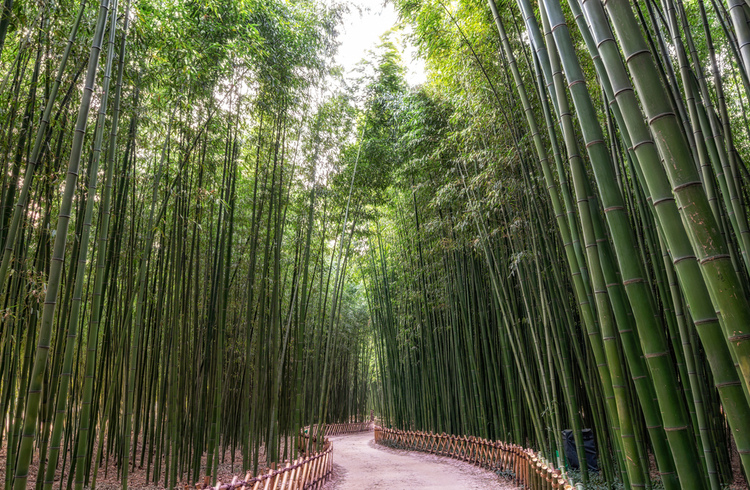 Photo © Getty Images/ AaronChoi
Photo © Getty Images/ AaronChoi
Listen Now
Being in the news for all the wrong reasons (thanks crazy neighbor) is no excuse to take South Korea off your travel wish list. Especially if you love hiking which is a favourite national pastime. Plus we go beyond Korean barbecue to discover how food is an essential part of South Korean life.
What's in the Episode?
00:00 - Our new introduction
03:45 - Quiz question
04:11 - Arienne Parzel. South Korea off the beaten path.
12:23 - Tim and Sarah and their 20-month long honeymoon, including South Korea.
17:21 - Check in with our World Nomads in Vietnam.
20:37 - Ian Paterson's tips on getting the lowest priced round-the-world air ticket.
24:40 - Thomas Maresca and 63 years of seperation for Koreans.
32:49 - Travel news
35:11 - Gangnam Style
35;30 - On the next episode
Who's on the show?
Arienne Parzel is a travel writer, photographer who documents her experiences on her blog seeyousoon. She also a World Nomads contributor and penned a piece about getting off the beaten path in South Korea after living in South Korea for 2 years. We talk to her about hiking and food. Arienne also mentioned Koreans have a food for everything, including boosting a man's performance in the bedroom. What is that food? Eel tail (yum yum!)
Tim and Sarah are on a 20-month long honeymoon around the world and have just visited South Korea. They're philosophy is to do more than just check off a travel list, they love to dive deep into the culture and learn what they can.
Ian Paterson has lived every nomad's dream, he's traveled around the world, but he's done it courtesy of the most amazing, and cheap, around-the-world airline ticket. How did he do it, how much did he save doing it this way? And he shares his tips on how you can do it too.
Thomas Maresca is a journalist who writes for publications such as USA Today. In the wake of the Seoul Winter Olympic Games he wrote about how the Korean war and the drawing of the DMZ has split familes apart. How does this impact on the South Korean psyche, and what are the chances of reconciliation happening?
Resources & Links
Arienne Parzei’s blog is www.seeyousoon.ca and her story for World Nomads https://www.worldnomads.com/explore/eastern-asia/south-korea/off-the-beaten-path-south-korea
Ian Paterson’s blog is https://resfebertravelblog.com and here's a link to blog post regarding best value round the world flights:
https://resfebertravelblog.com/2017/08/26/qantas-walkabout-round-the-world-flight
Check out Sarah's site Organized Adventurer.
Thomas Maresca’s story:
Gangnam is a nightlife area made famous around the world by Psy’s Gangnam Style hit.
Tim and Sarah's photos of their visit to the DMZ:
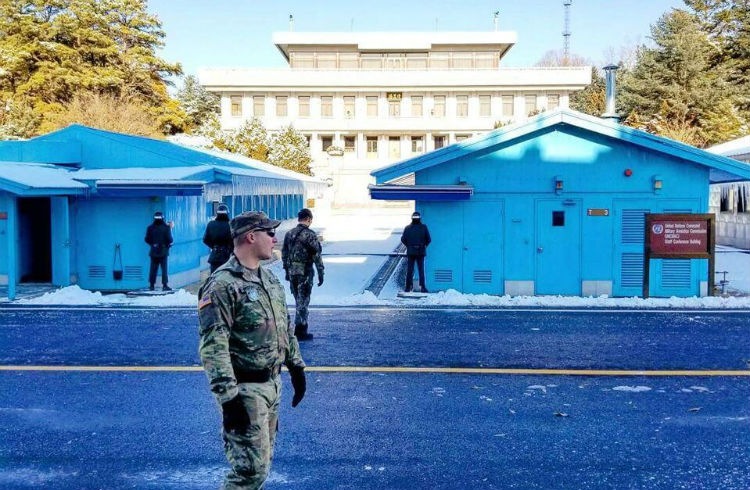
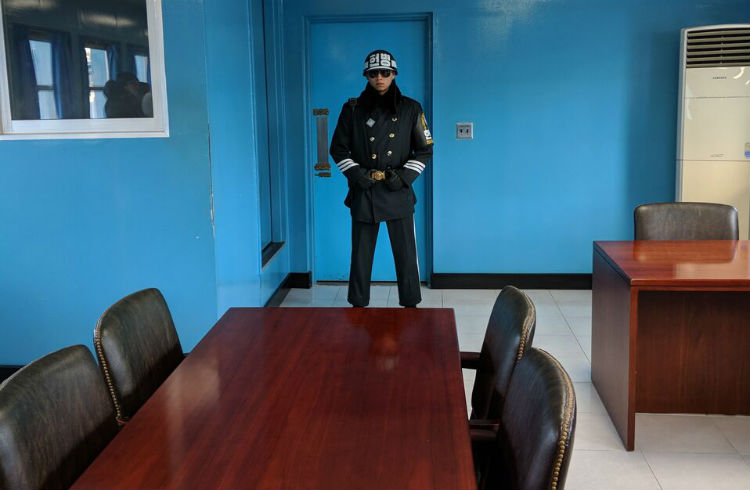
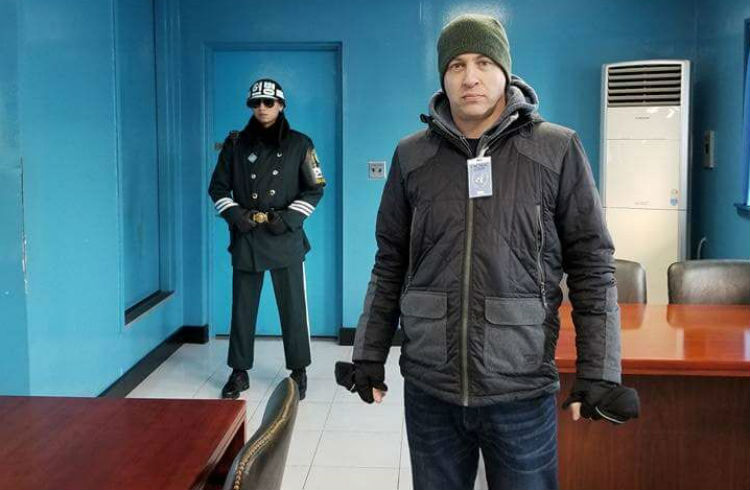
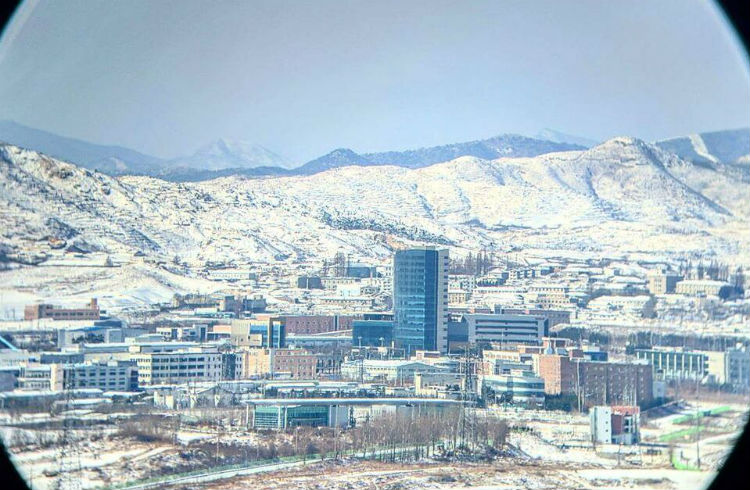
Co-host Kim with Hang, our World Nomad of the week, in Vietnam.
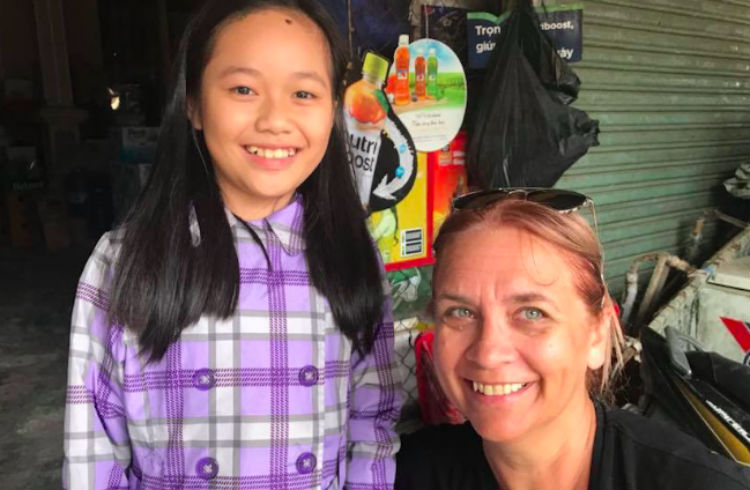
Want to Share This Episode?
Copy this code onto your web page:
<iframe width="100%" height="200" src="https://player.whooshkaa.com/player/episode/id/180713?visual=true&sharing=true" frameborder="0" style="width: 100%; height: 200px"></iframe>
Want to Talk to us?
We want to hear from you! If you have any travel insurance questions to Ask Phil, want to give us feedback on the episode, or have suggestions for topics you'd like us to cover, email us at podcast@worldnomads.com
Sign up for Podcast News
Explore your boundaries and discover your next adventure with The World Nomads Podcast. Hosted by Podcast Producer Kim Napier and World Nomads Phil Sylvester, each episode will take you around the world with insights into destinations from travellers and experts. They’ll share the latest in travel news, answer your travel questions and fill you in on what World Nomads is up to, including the latest scholarships and guides. The World Nomads Podcast is not your usual travel Podcast. It’s everything for the adventurous, independent traveller. Don’t miss out. Subscribe today.
Announcer: Welcome to the World Nomads podcast, delivered by World Nomads, the travel, lifestyle and insurance brand.
Woman 1: There's something about the islands here that touches people's souls.
Man 1: Hopefully, we make an impact in the world, that people will stop killing and culling sharks.
Man 2: It looked like snot, and it smelled bad, but don't let that put you off. It was good for you.
Man 3: Where else in the world are you going to see the Condor three meters right in front of you?
Man 4: No, absolutely.
Podcast Host: I'm not sure if I want to see the condor three meters in front of me.
Woman 2: So many things on our society that are throwaway, and we see [00:00:30] those things on our beaches, on our coastlines.
Podcast Host: Has anyone ever pooped themselves?
Man 5: Sometimes, the Germans can come off as cold.
Man 6: I think it is important to remember what has happened, but also look forward, into the future, and be positive about it, and that's, I think, what Germans are.
Podcast Host: It offers travelers the opportunity to teach English to children, and experience the Panamami ... Oh, that's [inaudible 00:00:52]
Phil: Speaking of teaching English.
Podcast Host: I've got to learn to speak it.
Phil: We were all told that you can't take a leak into [00:01:00] the river. You can't urinate into the river, because there's a parasite that will swim up your urine stream. Yeah.
Man 7: Yeah, Phil. You ...
Podcast Host: An idiot?
Announcer: It's not your usual travel podcast. It's everything for the adventurous, independent traveler.
Podcast Host: Hoo hoo! What do you think of the new intro?
Phil: I loved it. Very good. I like it.
Podcast Host: I love Johnny Magas's voice. I could listen to him all day.
Phil: I know. We keep forgetting. We've got to have him in. We've got to talk about his travels and where's he's from and everything.
Podcast Host: We will do that.
Phil: [00:01:30] We'll pull him in soon.
Podcast Host: We have hinted in other podcasts that you will not believe what his nationality is based on his accent.
Phil: We should start a competition. Oscar-style. Give away a jet ski.
Podcast Host: In fact, in this podcast, we're going to speak about a competition, but we're back in the studio to record Episode 12, and we're ready ... We've been to Italy, rather, we've been to Canada, we've been to Iceland. The list goes on, you can hear them all on iTunes. But where are we off to this time, Phil?
Phil: Well I'm excited about this one, I'm very interested in this as a destination. We're going to South, [00:02:00] Korea. Now as we know it's a bit of a troubled place at the moment. The Korean War in the 50s that everybody knows about the, I have to say it with the American accent, the DMZ, doesn't quite sound the same DM-Zed, demilitarized zone that's where they basically cause a ceasefire and as we're going to find out some families have been split up by the line and still haven't got back together.
Podcast Host: Yup, exactly. It's full of high rises too, South Korea. In the Seoul area alone, 25 million residents.
Phil: [00:02:30] Wow.
Podcast Host: Is that a-Did you know that?
Phil: No, I didn't know.
Podcast Host: Have I delivered you almost a quiz question.
Phil: That's it.
Podcast Host: Sorry, I didn't mean to do that. So who is on the show? Well, Arian runs a travel blog, it's called seeyousoon.ca with a niche in adventure activities and cultural experiences. She's lived in South Korea and she does say feel it's so much more than neon lights and Kpop music. Do you like the sound of a 20 month honeymoon?
Phil: Sure.
Podcast Host: Oh come on. Correct answer?
Phil: Not at my age, I'm not quite sure I can manage.
Podcast Host: [00:03:00] Well these newlyweds Tim and Sarah loved the idea. We caught up with them after they visited South Korea, including the demilitarized zone and they're on this 20 month honeymoon. We'll ask the question why. Would you wait 67 years to see your wife?
Phil: No.
Podcast Host: Oh god, can you have a bit of a think?
Phil: No, I wouldn't wait that long. I think that's terrible having to wait so long to see family members. Terrible.
Podcast Host: With North and South Korea divided after the war in 1953, [00:03:30] we speak with a journalist about families divided and it's almost literally by a line in the sand, isn't it?
Plus getting your moneys worth out of a round the world ticket, travel news, and yup, I'm sorry I've kind of ruined it for you, a quiz question but, it's your moment.
Phil: Okay, here we go. When you're driving overseas, two thirds of the world drives on the right hand side. Almost all the countries where they drive on the left are former British colonies or they've got a massive British influence, but there are two Asian [00:04:00] nations which drive on the left despite no British influence. Can you name them? Two very big Asian countries.
Podcast Host: Oh, I won't have a stab at it now but we'll find out at the end of the episode.
Arian is a travel writer, videographer, and a photographer from Toronto and she is also a World Nomads contributor. In fact, she wrote an article for us on South Korea and it was about South Korea off the beaten track.
Welcome to the Podcast.
Ariane: Thank you. Thank [00:04:30] you so much for having me.
Podcast Host: So there's much more to Korea than cities and neon lights and Kpop music?
Ariane: Oh absolutely. I mean, those are probably the three main things that people will love about it but there's so much more to the country. It's quite diverse in what it offers for travelers, tourists as well as people who call it their new home especially expats. There's a huge expat community there.
That's actually what I was doing there as well. I lived there for two years, taught English at a all boys [00:05:00] semi-private school and it was a really fascinating, interesting, and very enjoyable experience.
Phil: And that was in Seoul? That was in the capital?
Ariane: Actually no I was in a really small town it's called Jecheon. It's almost pretty much smack dab in the middle of the country. And at first when I moved there I was like, "Where did I go?" Coming from Toronto being a big city to a really small town was an adjustment but I actually about [00:05:30] six months into it I really enjoyed being in a small town and being able to go up to Seoul every few weeks to kinda have that big city experience but being in a small town really forced me to have to learn a bit of the language, to really get to know the culture and really just to dive head first into living in Korea.
Podcast Host: Well some of the links in the article you wrote include Eating like a local in South Korea. Can you elaborate on that?
Ariane: Yeah, so Korea's [00:06:00] food is really really fantastic and the biggest thing that we all know if Korean barbecue but that's just only one sort of aspect of it. Korean's love to eat depending on the season. Depending on the climate that's happening outside, so whether it's the monsoon rainy season I had foods that they'll eat then versus in the cold winter months they'll have different foods. If you're pregnant they will tell you to eat certain things. And if you're [00:06:30] a man that maybe wants to get somebody pregnant there's also foods that they encourage you to have that will help you in that department as well.
Phil: Oh, go on. What do you- [crosstalk 00:06:40]
Podcast Host: What do you eat?
Ariane: Well they call like man strength so...
Phil: Now, please tell me it's beer. Because then you know I'm okay.
Ariane: Well that helps absolutely, but there are different foods and to be honest I can't [00:07:00] remember because obviously that wasn't quite my department but... if that's what you want[crosstalk 00:07:06]
Phil: Tell you what, we'll look it up and add it to the show notes. We'll do that. We'll find you what you need for man strength.
Podcast Host: I'm looking forward to googling that. Also, another of your links is Hiking in South Korea.
Ariane: So, hiking is, I'd say, probably the most popular pass time that Korean's do. Every weekend you will see them in full hiking garb taking on some new trail or some new mountian. [00:07:30] Korea itself is very mountainous so there are endless options of trails from beginner levels to intermediate to advanced level trails. There's a lot just right in Seoul itself, which is not usual for many big capital cities to have something so adventurous right in the city center. You don't have to drive, you can take public transit to get there.
But for people who really enjoy hiking it's [00:08:00] really just a fantastic destination for that.
Phil: Are you talking about- what sort of grade of hike are we talking about? A good stroll? Or up to something super difficult?
Ariane: Both. Both ends of the spectrum. I'd say the majority probably fall within intermediate to advanced level hiking, so using hiking sticks to help distribute the weight, to make sure you've got proper hiking shoes for that, ad to be [00:08:30] packing snacks and ample amounts of water for the trail.
The cool about Koreans is that they turn their hiking into excuses to picnic and to drink while their hiking and you regularly see them stopped just on the side of the trail and almost creating a full sit down barbecue meal. And somehow they pack it all up and they carry it with them but don't be surprised if you're taking to the trails and they invite you to join in and I highly recommend that you do because that's where [00:09:00] you get the really cool experiences being in the country.
Podcast Host: So, Koreans like to party. What's it like to party with a South Korean?
Ariane: Hopefully you've got a lot of energy because they will go until the sun comes up. Soju is the drink of choice when you're out. It's about 20% alcohol and it's pretty much like vodka but it's distilled from rice and [00:09:30] thing will usually start at a restaurant and the way that they like to start their partying is with and then with soju. And generally what they like to do is if you're in a group, like a bit group of people, minimum one bottle of soju per person has to be consumed when you're out having a meal.
And then it will progress to, maybe you'll go to noraebang for singing karaoke, which a lot more drinking is involved then. Maybe you'll go to some [00:10:00] of the bars and continue on and it's just...
They like to call it keeping the atmosphere or keeping sort of the vibe and if things are going really great you're not supposed to leave. You don't want to break the atmosphere that they've created. And sometimes that means you're going until the sun comes up. They work hard and they party hard.
Podcast Host: If we slow it down a little, Buddhism has been introduced to South Korea and influences the culture. What sort of temples and things [00:10:30] can you visit and what's the etiquette?
Ariane: Great question. Temples are found all over the country. Predominantly, actually, one great area to go to is Gyeongju. It's the old capital city in Korea. There's a lot a lot of history there. And there you'll find one of the oldest temples in Korea it's called Bulguksa and it's a great spot to see monks actually practicing as well [00:11:00] as sometimes they offer temple stays which is also another popular activity to do where you can stay overnight in temples and learn more about Buddhism and the traditions that have been... while you're at a temple.
Also a really cool temple I got to visit often because it was close to where I lived was Guinsa Temple. It's close to Danyang. And it has this incredible incredible [00:11:30] hall. It's five stories high and it's the largest in Korea, so in terms of sheer size it... I think it's something like over 10 thousand people can be in this one temple. And the architecture, if you're really into architecture it's really fantastic and makes for really fantastic photo opportunities plus, again, learning more about the culture. And I'm one who live to learn about cultures firsthand and doing a temple stay or visiting the temples throughout [00:12:00] Korea is a great way to learn more about that.
Podcast Host: Well sounds like a visit to South Korea we need to be, as we say in Australia, match fit. That's up for all the eating, up for all the drinking, up for all the hiking and then maybe calm down with a visit to a temple.
Ariane: Yup
Podcast Host: Our link to Ariane's blog will be in our show notes. Tim and Sarah, they're on a 20 month long honeymoon. They're documenting it in their blog, "Our 21st Century [00:12:30] Odyssey." Let's check in and see if they've had a fight yet, Phil, and where did they get this idea.
Sarah: Well we took a year off back in 2014 and did a year long trip around the world and when we came back we pretty much instantaneously knew that this was something that we wanted to do again. And thankfully we work as consultants and so it's fairly flexible for us with our jobs to take time off and then be able to come back [00:13:00] when we want to and dive back into the same industry.
Podcast Host: And so is part of the aim to immerse yourself in the culture of the countries that you're in? You're not just simply ticking boxes?
Sarah: That's right. That's definitely something that I make a personal point of sharing with others when we're talking about our trip is that travel shouldn't just be something where you have a checklist and you're just ticking off the seven wonders of the world or a certain number countries, but rather [00:13:30] you should be pursuing experiences and immersing yourself within the culture. And so, that's where we prioritize our planning os when we're looking at going to a place we think about what do we wanna learn there, what do we wanna get out of it, what do we want to give when we're there, and how can we be good examples of travelers around the world.
Podcast Host: Now, you've heard of the honeymoon period?
Sarah: Yes.
Podcast Host: So at this point, have you had an argument?
Sarah: We get along really [00:14:00] well. We do have little disagreements here or there for both... especially if we're both hungry or tired we can get like anyone sometimes a little short. But by and large we get along really well and we make a good team. And the other thing to when you're spending 20 months non-stop with someone, being in a fight is very inconvenient, so if there's ever a disagreement we both want to resolve it.
Yeah, and Tim and I are good travelers together. He is very easy going and I'm the one who tends to like to plan more and has done [00:14:30] most of the itinerary planning and research into places so it's really easy for em to be like, "Hey Tim do you wanna do this today? and he's like, "Yeah, sure." And he'll pull up navigation on his phone and help get us there and we have an agreement that if I do all the planning and booking he'll do all the cooking and cleaning so we've got a good delegation of workload there.
Podcast Host: Excellent, well we chatted to a couple in our Iceland podcast. She revealed that her husband, his luggage is heavier [00:15:00] than her luggage after they leave each destination. Which just goes against what everyone thinks about women carrying lots of stuff in their luggage. What's the situation with you guys?
Sarah: So, we each have a 30 liter pack, backpack and then one smaller size day pack that we're carrying. And so everything that we have for the trip fits into those two bags.
Podcast Host: You can follow Tim and Sarah's 20 month honeymoon with their blog, "Our 21st Century [00:15:30] Odyssey" and we'll have links to it in our show notes, including their itinerary from South Korea where they also visited the demilitarized zone.
Phil: It fascinates me, the DMZ. The pictures I see of it there. And apparently you can go into one room where you have a window on the other side and you're actually looking into North Korea and it's all soldier everywhere.
Podcast Host: This will excite you Phil. We've got some amazing photos from Sarah to share in our show notes.
Phil: Fantastic, I can't wait to see them. I love the place.
Podcast Host: Well we asked Sarah [00:16:00] what it was like to visit the DMZ.
Sarah: It's absolutely weird that you can go there as a tourist and that's something that I was saying when we were in the bus on our way up there. It's so weird that they let us do this. And then when we were there and we were actually in this conference room where the North and South meet jointly to have conversations and part of that room is technically in North Korea. And we're surrounded by military guards from both sides and it's like, why are they letting us here? This feels so strange.
It is very odd [00:16:30] that they let tourists there but it's very eyeopening into a place that some would consider the most hostile border on Earth. And it was certainly the most unsettling experience that I've ever had as a traveler to be there and to know that just a few feet away is a place where the world operates in a completely different manner and it's a place that as an American I will very likely never get to go unless things change pretty dramatically so [00:17:00] there is very much this feeling of this is as close as I will ever get.
Podcast Host: Incredible and as Sarah says, it's probably one of the most hostile borders in the world. Well share those amazing pics we talked about just before she told us about the DMZ in our show notes. And later in the episode we'll catch up with a journo who wrote a recent article about families divided when North and South Korea split. Now though, time to check in with our World Nomads.
Speaker 15: Hello!
Podcast Host: How are you?
Speaker 15: I'm fine thank you. And you?
Podcast Host: [00:17:30] Oh your English is good. Nice. [inaudible 00:17:32]
Speaker 16: Hello.
Podcast Host: Hello. Bye!
Speaker 16: Bye!
Podcast Host: And just like that, I'm in Hueế, Vietnam. It's the former imperial capital and around 50 k's from the former DMZ or DM-Zed that once separated North and South Vietnam prior to the Vietnam War.
In fact, Hueế is the site of the Tet Offensive, which was one of the longest and bloodiest [00:18:00] battles of the war. Now we've spent most of our time in a village called [Tuan, Tuan 00:18:05]. And while there are around six universities in Hueế, you come this way, just 20 minutes towards the East Vietnam Sea, education's fairly low so not a lot of English is spoken. Lots of hello's, so I was pretty interested to hear from those in the village that could speak English about why learning and practicing their English with [00:18:30] travelers is important.
Han: My name's Han.
Podcast Host: And where are you learning English?
Han: I learned it as my school and my aunt can speak English and teach me. My aunt lives in England and I want to visit it, my aunt home. I [inaudible 00:18:50] a few year ago. A picture in [00:19:00] primary school and her teach me and she took me and I can speak English now.
Podcast Host: Okay, high five?
Han: Yeah.
Podcast Host: Thank you.
Han: Where do you live?
Podcast Host: I live in Sydney, Australia? Have you heard of Australia?
Han: I have relative in [inaudible 00:19:20]
Podcast Host: Oh do you? Did they leave a long time ago?
Han: About 30 years ago.
Podcast Host: 30 years ago they left, was [00:19:30] that after the war.
Han: Yeah.
Podcast Host: So how long have you been learning English?
Speaker 18: Two years.
Podcast Host: Two years. And why did you start learning English?
Speaker 18: Because I want to have a communicate...
Podcast Host: With travelers?
Speaker 18: Yeah.
Podcast Host: Yeah? And would you like to travel yourself?
Speaker 18: Mm-hmm (affirmative). Maybe, Paris?
Podcast Host: Why? Why Paris?
Speaker 18: Yeah because it is a country very romantic and very beautiful.
Podcast Host: Find a girlfriend? Girlfriend? Marry [00:20:00] in Paris?
Speaker 18: In Paris, if I can because very difficult, yeah?
Podcast Host: And you like people coming up and talking to you in English?
Speaker 18: Yes, I like.
Podcast Host: To practice?
Speaker 18: Yeah, to practice, yeah.
Podcast Host: Yeah. What other country or town would you like to visit?
Speaker 18: I think in California because I have a cousin stay there.
Podcast Host: Well good luck with that. You have to [00:20:30] save your dong.
Speaker 18: Yeah. Maybe I [inaudible 00:20:34] lots of money for my travel.
Phil: Travel can be expensive but with a little investigation you can find a cheap flight. Ian Patterson runs a travel blog, has a background in the travel industry, and knows how to secure the lowest round the world air ticket.
Ian: Yeah, well, this is a ticket that... it's not really possible for people to book [00:21:00] or buy themselves. So I come from a travel industry background as a travel consultant and I've helped lots of people travel around the world and consistently I find that the best airfares that you can get to do that with, the most cost efficient ones, the one's that open up as many destinations as possible are these kind of manually built fares and so that's what the article was about really.
Phil: [00:21:30] So could anybody walk up to their travel agent and say I want this really super cheap round the world fare?
Ian: If the travel agent has the contract to do it or has the knowledge to build the fare type then yeah they could and your first port of call would be to speak to someone at travel agency about what they can do for you.
Podcast Host: So you booked a year long trip through, it was Qantas, [00:22:00] but you used travel agent?
Ian: I did yeah I used an independent travel agent based in eastern North London and this was way before I got into working in the travel industry myself and...
They... well we had a bit of a chat. They were a previous backpacker themselves so they kinda understood the kind of thing I would want to do, the kind of trip I wanted to do. We put together and itinerary which we thought best matched my [00:22:30] budget and the places I wanted to go and see and that's kinda how I ended up going on the trip that I did.
Phil: Yeah, come on let's get into the nitty gritty of it right. So where did you go? And it's kind of complicated cause if you miss one leg you blow the whole thing out of the water, so explain where you went and how crucial it was to hit those deadlines, hit those flights?
Ian: Oh yeah, absolutely. It is important to make sure you're there on time. So for me, I flew [00:23:00] to South America first of all... landing into Panama, and I traveled over land and sea through South America and exited out of Chile and that's where I had my scare. On the last night before heading over to New Zealand, which is the next destination to go to, the guy I was traveling with had a bit of a heavy night and a bit of a lion in the morning and we nearly missed that flight. And had we done so, [00:23:30] I'm afraid we would have invalidated our whole ticket, so it would've been a bit of a problem for us on the other side of the world.
Podcast Host: It would've been. So then you flew to New Zealand.
Ian: Yeah, absolutely. So I flew to New Zealand and we spent about a month traveling around New Zealand. Went on to Australia, your home country. I spent some time on the east coast of Australia before heading off to Asia. That's where I finished up my last destination was in Asia, traveling around Thailand before going back to the UK.
Phil: [00:24:00] How much cheaper was it than doing individual flights?
Ian: Back then it was about 1600 UK pounds which was about 2 and a half thousand Aussie dollars.
Phil: That's pretty good for around the world.
Ian: Yeah, it's pretty good and the quality of airlines were really good was well. It wasn't low cost airline where you gotta pay extra for the bag and you're squashed in with your knees around your chin. It was good quality airlines, you know?
So, yeah, I think it was around 30, 40% [00:24:30] cheaper than if I'd pieced the tickets together myself.
Phil: And was there a lot of planning involved by you, as well? Like deciding where you wanted to go? And in that planning, were there some places where you wanted to go but it wasn't possible to do it on this ticket?
Ian: Hey Phil, all travelers are dreamers. It'd be ages to pin down that route and I think my travel guy was very patient with me in piecing that itinerary together, [00:25:00] which it took me about six months before I actually booked the thing. But you know that's what it is. It's the trip of a lifetime and it takes a lot of planning and that's part of the reason that I wrote the guide that I did that you guys have taken a look at. Just to help people in those initial stages of planning around the world ticket so that they can get an idea of what works for you, what the routings [00:25:30] are like, how much the costs are gonna be before you take it to the next stage and make a booking.
Podcast Host: Well have all the info you need to get your hands on those tickets in show notes. Thomas Maresca is a journalist who wrote a story around the time of the Olympics in South Korea, did you notice how my tone changed then? Because this is kind of a serious topic.
Phil: Serious stuff.
Podcast Host: It is, he wrote this article for USA TODAY and the title of which was "How three days turned into 67 years of separation for these Koreans" and we asked him about [00:26:00] that article.
Thomas M.: You know it's something that came up during the run up to the Olympics when North and South Korea had their first sit down for a couple of years in anticipation of the Olympics and it's something that the South had brought up as wanting to sort of start having these family reunions again, which they've only had a handful of in the past.
Looking into it, I learned that [00:26:30] there's really hundreds of thousands of families that had been separated during the war... I don't know it's not something you'd normally think of as a consequence of the war. I mean there's the obvious separation of the country and you see North Korea setting off missiles and doing nuclear tests but you realize there's actually so many people whose lives have been affected in this deep way, losing contact with mothers, fathers, brothers, sisters. I spoke with the Red Cross in South Korea who they kinda administer [00:27:00] this very limited family reunion program that's been happening since 2000. Almost all of them are over 70 and even more than 60% of them I think are over 80. There's something like 60 thousand people or 59 thousand people that are on the list her in South Korea that want to have reunions with their family members in the North if it's possible. But that list has already shrunk from 130 thousand.
Phil: I mean how does this separation, this division [00:27:30] of families, how does that drive the psyche of Koreans and the South Koreans that you've met? This must be... I mean this is heartbreaking stuff.
Thomas M.: It is heartbreaking, I mean... yeah, there's something that talking to the people, I spoke to a few people for this article, and, I think in some ways it's... the time has been so long and also there's something in maybe about people from that generation that are a little more reticent to talk about their feelings [00:28:00] kind of and even within, I think, some Asian cultures it's not as much of a thing to kind of express how you feel or your sort of hidden personal pain or something like that. But, once you start to speak to them and dig in a little bit, it's quite obvious to see that it left just this hole in people's lives.
Podcast Host: Tell us about the man you spoke to, the 87 year old?
Thomas M.: Yeah, his name was Roh Hee Kwan [00:28:30] and he had been living in Kaesong, which is actually right on the border of North and South Korea. At that time during the war it was on the South side but then the line drew a redraw and at the end of the war it's been on the North ever since. But he was living there with his mother and a couple of brothers and was kind of like a student soldier, he described to me, not really fully in the army but I guess training. And, his commanding officer told him, " [00:29:00] Okay, take three days worth of supplies. We're making this strategic retreat," which turned out to be the last time he saw his family.
Podcast Host: And is the Red Cross doing the majority of the leg work in trying to help those people that have been separated?
Thomas M.: Yeah, they've worked on this program for... I think this agreement was struck sometime in the 90s between the Red Cross in South Korea and they do have a counterpart in North Korea. So I think to make it less of a political [00:29:30] nation-to-nation kind of thing it's administered through them.
So they're the ones who maintain this database of families who want to participate. I mean, not every family wants to. It's really kind of... the South is ready to go at any second, it's really the North that's been very very hesitant to work with them except for these periods. North and South relations kind of are this rollercoaster and there's a lot of times when there's jus almost no contact. So, they've had [00:30:00] 20 family reunions since 2000. And almost all of them take place in North Korea. And it's kind of like 100 family's members on each side get to meet for three days... a number of sessions over three days. And most of it is still kind of monitored. There's North Korean minders there and I think they get like once personal meeting in a hotel room.
But yeah, it's the Red Cross that [00:30:30] handles the logistics of it.
Podcast Host: You've heard that Kim Jon-UN invented the hamburger and is the fastest runner in the world. Have you heard all those crazy stories?
Thomas M.: Sure well his father Kim Jon-IL was supposed to have scored like 19 holes in one the first time he ever golfed...
Podcast Host: That's right.
Thomas M.: There's kind of... a information gap between North Korea and the rest of the world. Although, [00:31:00] interestingly, and this is some other stuff that I've covered, if you talk to North Korean refugees that have made it to the South, a lot of them say that there's more and more information is making its way into North Korea, just in the form of... Some people on the border areas like with China can pickup TV signals and other people smuggle in on just little USB sticks South Korean pop music, soap operas, stuff like that. [crosstalk 00:31:26]
Phil: Oh no. No [inaudible 00:31:26] to put up with Namangan Style.
Thomas M.: You know but for [00:31:30] them this is like a window to the world for them and it's actually, you talk to some, especially younger North Koreans who have escaped and are living in South Korea now, a lot of them say that-
Phil: A lot of them have heard Namangan Style and gone back?
Podcast Host: They love their Kpop. They love it. They love it.
Phil: I know.
Thomas M.: Yeah it's just, or imagine the TV shows, they see the lives that South Koreans live on these soap opera type shows and they see the cars they drive, [00:32:00] just their houses and stuff, what they wear. And the North Koreans watching this realize, "Hey, our leaders are telling us South Korea is this hell hole and we're the best country in the world, but I can see with my eyes that that's not the case." So it actually kind of helps to bridge that disconnect between reality and the sort of fantasy that North Korea's trying to weave.
And a lot of people think, this may be the most powerful weapon to force change in North Korea, not so much missile strikes, but [00:32:30] just information.
Podcast Host: Well, a very insightful chat, Thomas, and we're going to have to finish the podcast up with a little bit of Gangnam Style. Really appreciate chatting to you and we will have a link to that article you wrote in show notes.
Thomas M.: Oh, fantastic. Okay great, well I really appreciate it and good luck with everything.
Podcast Host: What travel news have you got for us in this episode?
Phil: Well I'm not sure if this is travel news or another quiz question, who are Josef Wag and Gijon Choi? That's the names used on two [00:33:00] Brazilian passports issued in the 1990s and allegedly used by North Koreans leader Kim Jon-UN and his father Kim Jon-IL to attempt to obtain visas so they can visit Western countries. No word on whether they actually used them to get to Western countries, but you have to love a dictatorship where they ban everybody from traveling but they can get themselves some Brazilian passports to go and party in Rio.
Podcast Host: Yeah, exactly. Where do I feel like going this month?
Phil: Alright, Meghan Markle has revealed how she avoids jet lag [00:33:30] and despite being a fiance to a British royal, it kind of makes sense. The first thing she says she does when she gets on a plane is wipe down the surrounding area with hand sanitizer. Makes perfect sense. You know those remote controls and the buttons on the screens, yeah you've gotta wipe them all down.
Podcast Host: You know what, Meghan, no you gotta toughen up a little bit.
Phil: What, lick them?
Podcast Host: No, not lick them. But seriously have you ever got on a plane an wiped everything down?
Phil: Yup.
Podcast Host: Okay, I stand corrected.
Phil: Okay. [00:34:00] It's like how I hose my kids down when they come back from play group or something, you know?
The other thing she does, she coats the inside of her nostrils with a moisturizing gel because she says dry and cracked skin will let the germs get in.
Podcast Host: Okay, can we just stop for a minute. So she's gone on the plane. It's first class.[crosstalk 00:34:18]
Phil: She's wiped it down.
Podcast Host: You'd assume that they would be in first class that they'd wipe it down. She wipes it down. Then she sticks her fingers up her nose.
Phil: She puts some Vaseline up her nose, yeah.
Podcast Host: Then what does she do, Phil?
Phil: Then she says she [00:34:30] take a high strain probiotic for gut health. And then... her words in this article, hydrate like you're dying of thirst because even if you're not your body sure is. Hydrating I get, it is a very dry atmosphere when you're in a plane [crosstalk 00:34:47]
Podcast Host: Oh you've got to drink. There's a lot of free champagne. No you've got to drink water.
Phil: And then she added that she never travels without a scarf or a cashmere blanket that feels like a hug.
Podcast Host: Alright, stay with us while we wrap this episode up, [00:35:00] which we do with Phil's quiz question.
Phil: The answer of all the countries which drive on the left hand side, two in Asia, without British influence, Japan and Thailand. They drive on the left.
Podcast Host: Excellent, well that wraps up episode 12. We're not going anywhere though until we hear a little bit of Namangan Style.
I loved it.
Next we're off to Indonesia [00:35:30] which includes a chat with a woman who's traveled to... around the world actually this is your chat. The world solo, totally on her own. A reminder to subscribe, rate, share on iTunes, Google Play, Stitcher. Find us on Spotify and Radiohead and contact us by emailing podcast@worldnomads.com
Bye!
Phil: Bye! Talk to you next time
Announcer: The World Nomads podcast, explore your boundaries.
Related articles
Simple and flexible travel insurance
You can buy at home or while traveling, and claim online from anywhere in the world. With 150+ adventure activities covered and 24/7 emergency assistance.
Get a quote




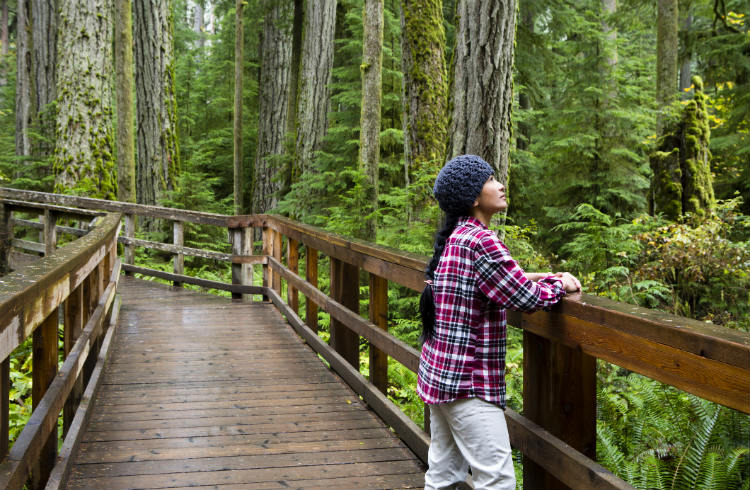
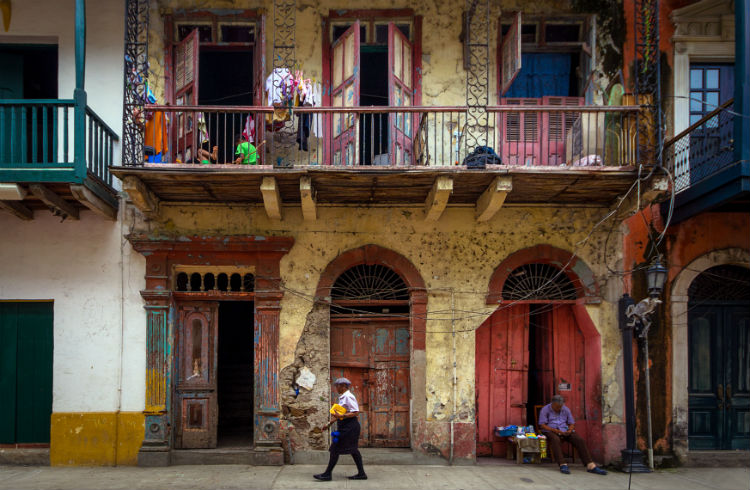
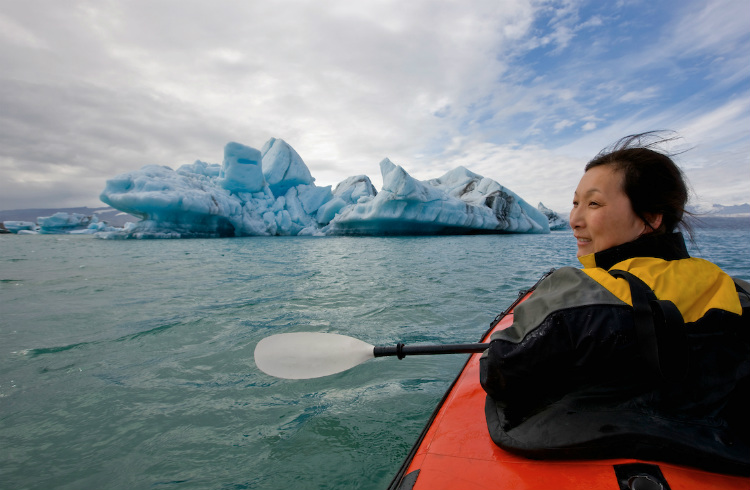
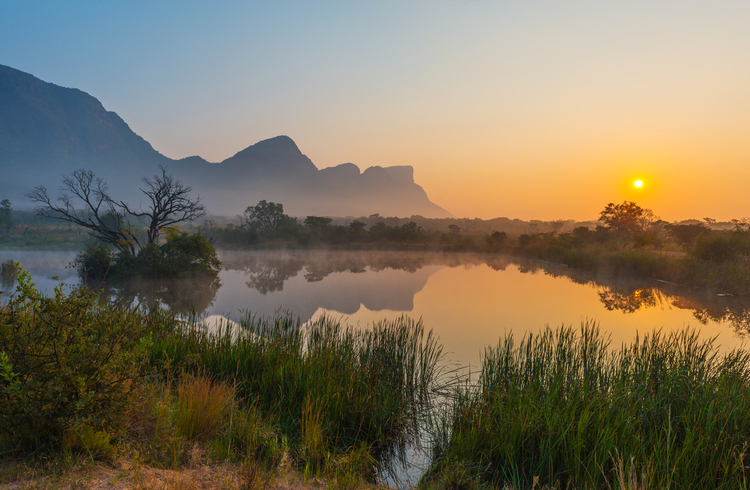
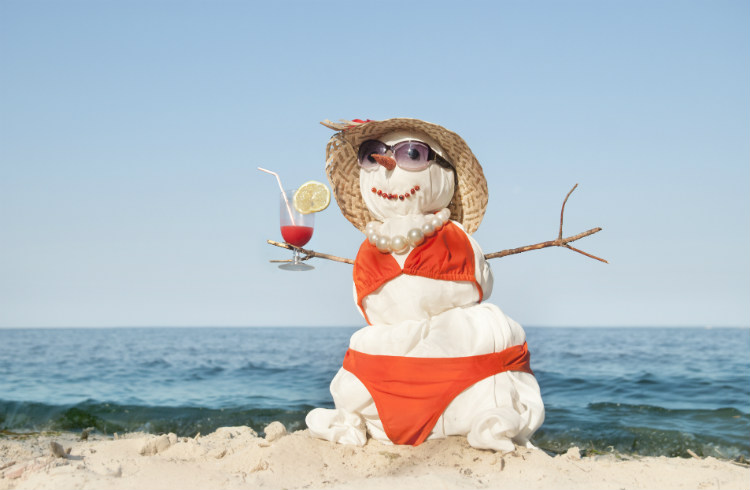
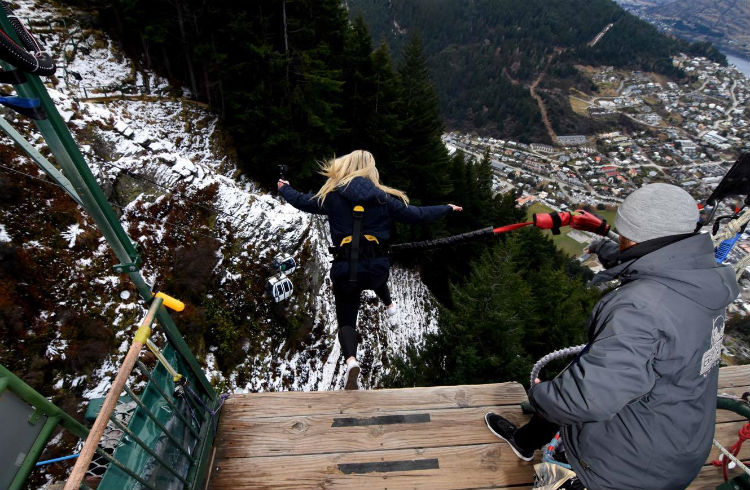
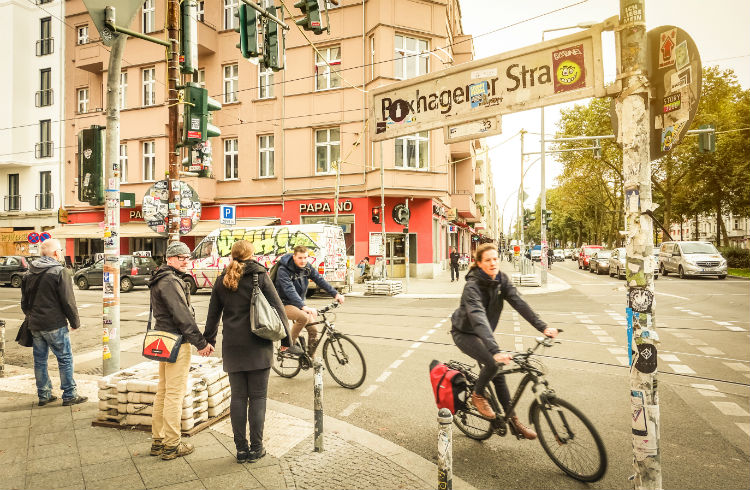
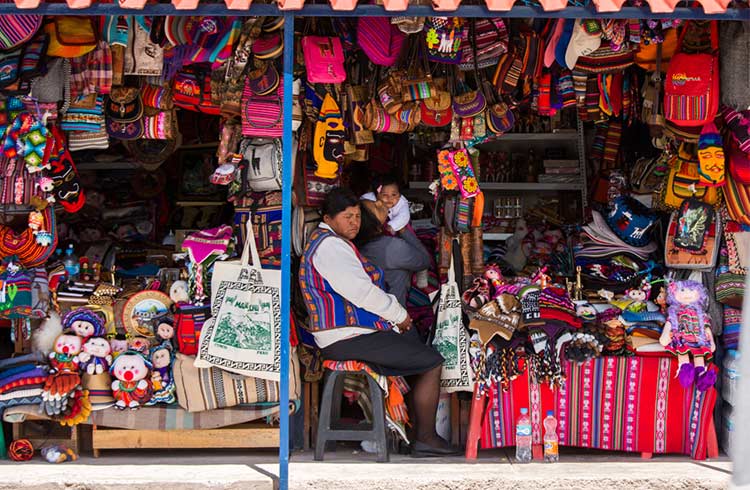
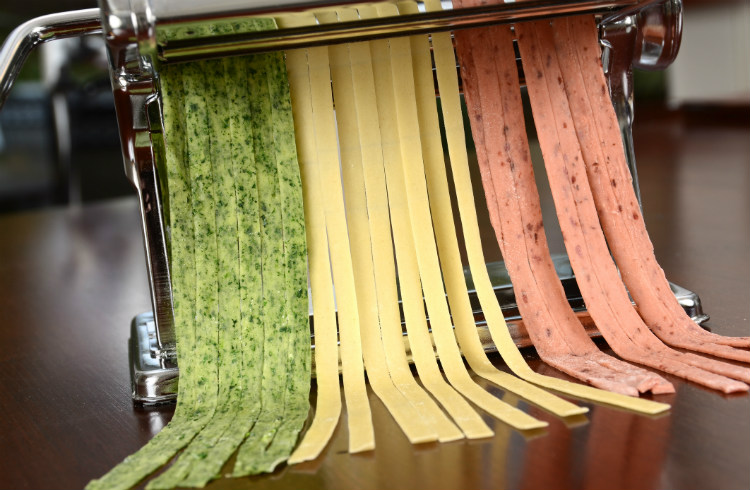
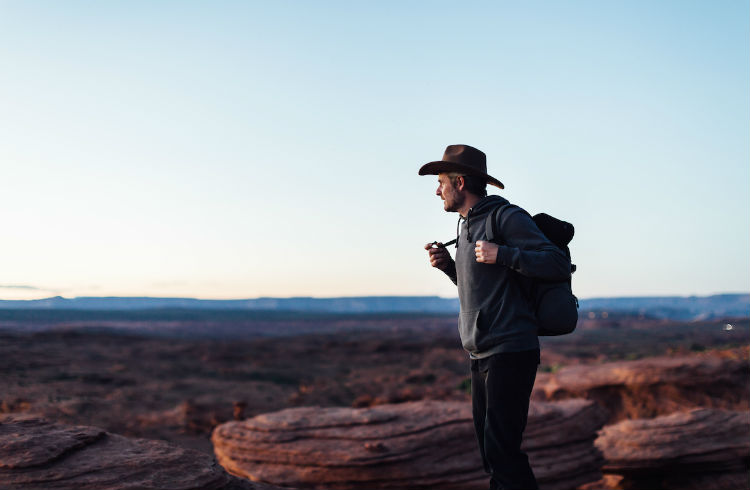
No Comments